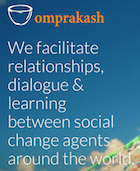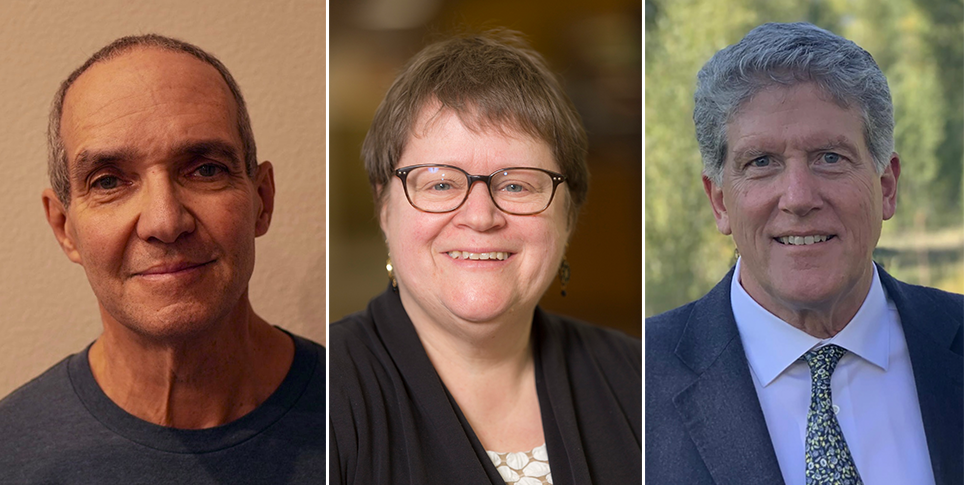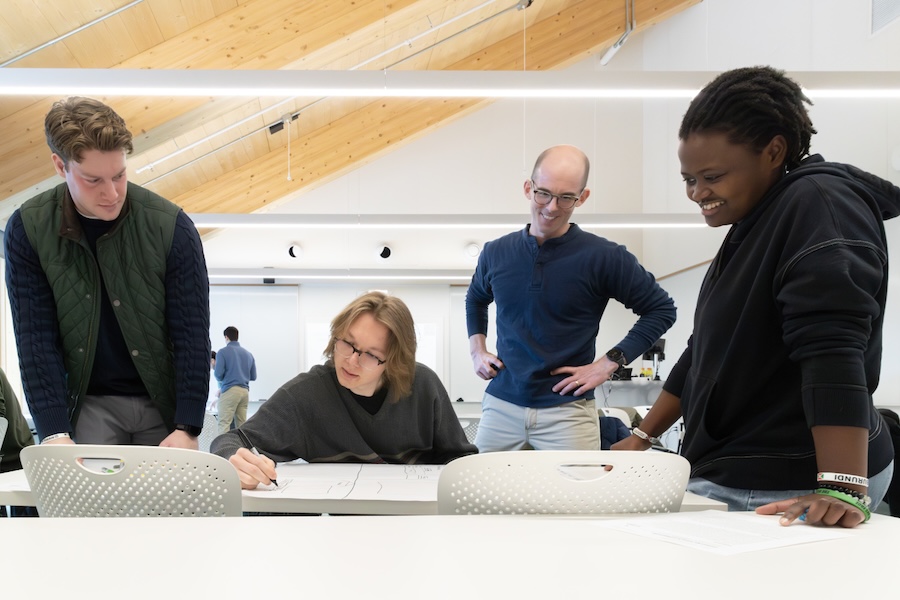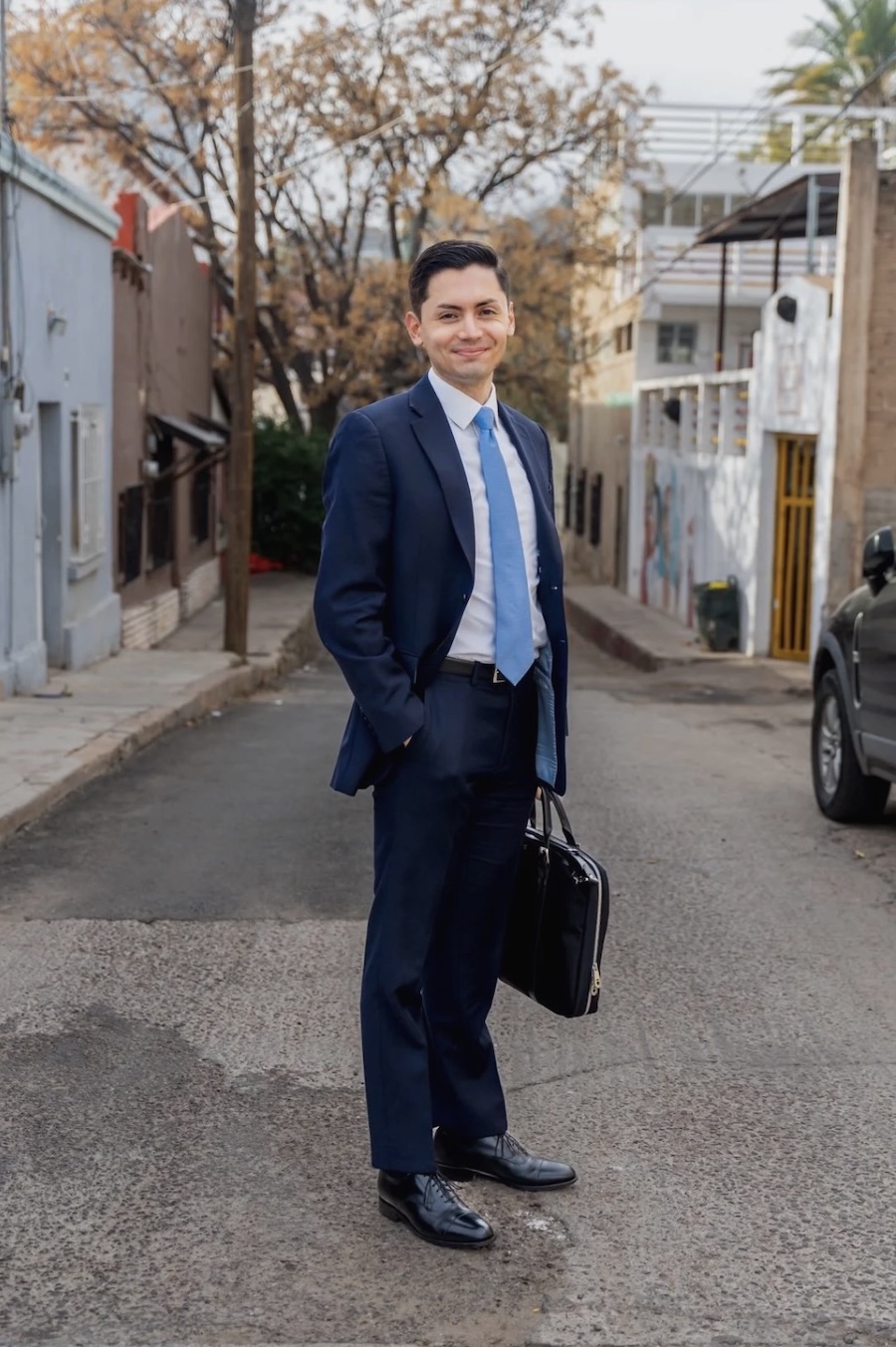‘What Matters’: The Problems and Possibilities of International Service
By Henry Bredar '19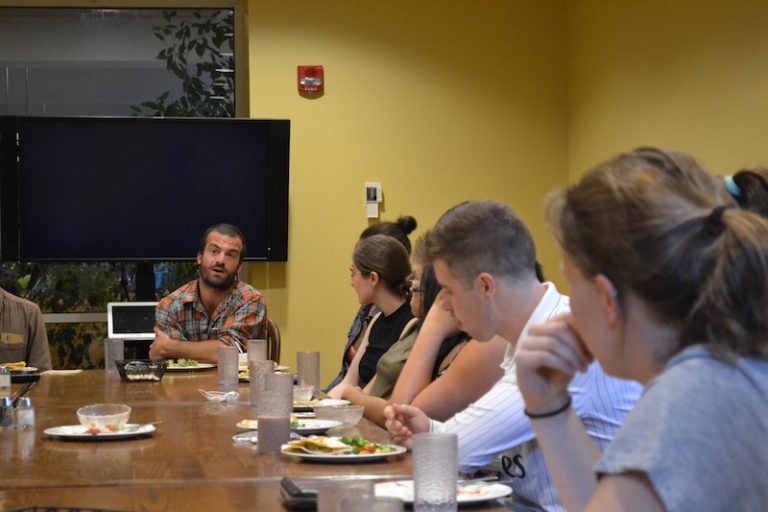
His visit was one of the McKeen Center for the Common Good’s “What Matters” conversations. In response to events and cultural debates that arise in the news cycle, the McKeen Center organizes public discussions on campus, inviting staff, faculty, students, and community members to share their thoughts and questions. Its next What Matters event, on Tuesday evening, will focus on “patriotism and protest,” responding to the controversy around quarterback Colin Kaepernick’s refusal to stand for the American anthem.
Oppenheim is the founder and executive director of Omprakash, an international nonprofit that connects 166 organizations in 35 countries and many thousands of people around the world. Its partner organizations use the network to find volunteers, interns, researchers, and donors, as well as to show their work to a global audience, according to the Omprakash website.
After graduating from Bowdoin, Oppenheim studied at the University of Oxford as a Rhodes Scholar, focusing his doctoral research on girls’ schooling in rural Pakistan.
In 2004, before attending Bowdoin, Willy Oppenheim ’09 founded Omprakesh to try to change the way people think about service abroad. Omprakesh offers a different view of service, one that doesn’t exacerbate the mindset that service is hierarchical, with the rich aiding the poor. Instead, Omprakesh focuses on “how we engage in conversations that help us better understand each other.” Oppenheim added that he wants people to take what they learn from these dialogues and translate them into action.
Thirty students shared dinner with Oppenheim, discussing a range of topics, including problematic issues of “for-profit service companies.” Oppenheim also acknowledged Bowdoin’s role in giving students the opportunity to pursue worthwhile service, noting that “many universities talk the talk, but there’s a lot of critical reflection at Bowdoin about the common good” that he does not find in many other places.
Several students asked how they could partake in service that was both helpful and necessary. Oppenheim suggested pursuing opportunities that included learning. He said he believes that service is most beneficial when a strong relationship is born between people or groups. He also advised students to “engage in conversations that help us better understand each other.”
